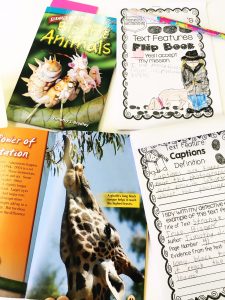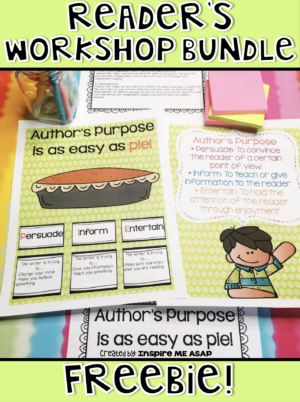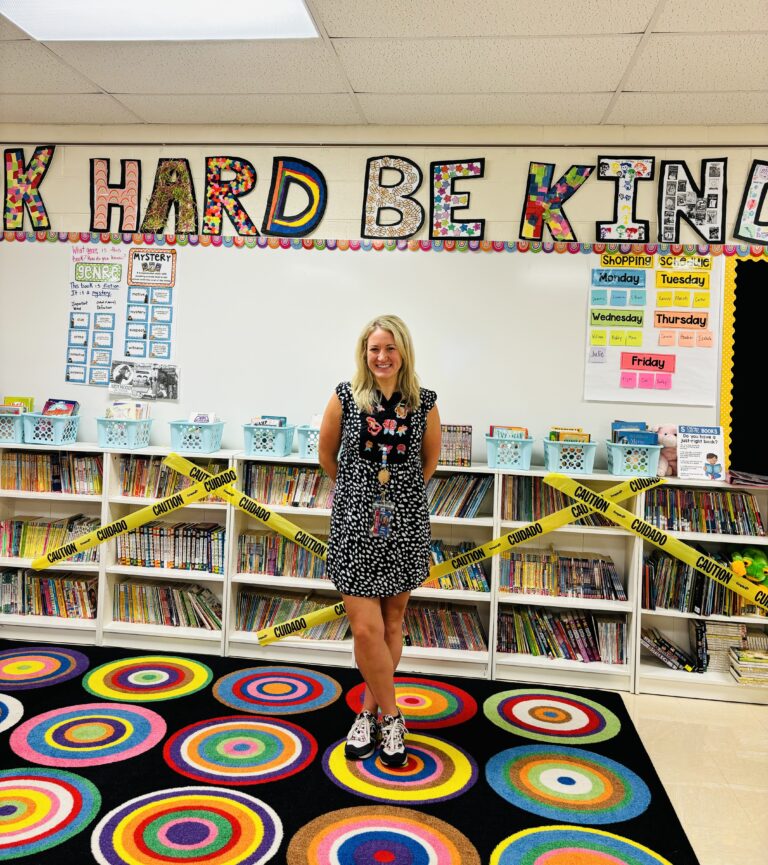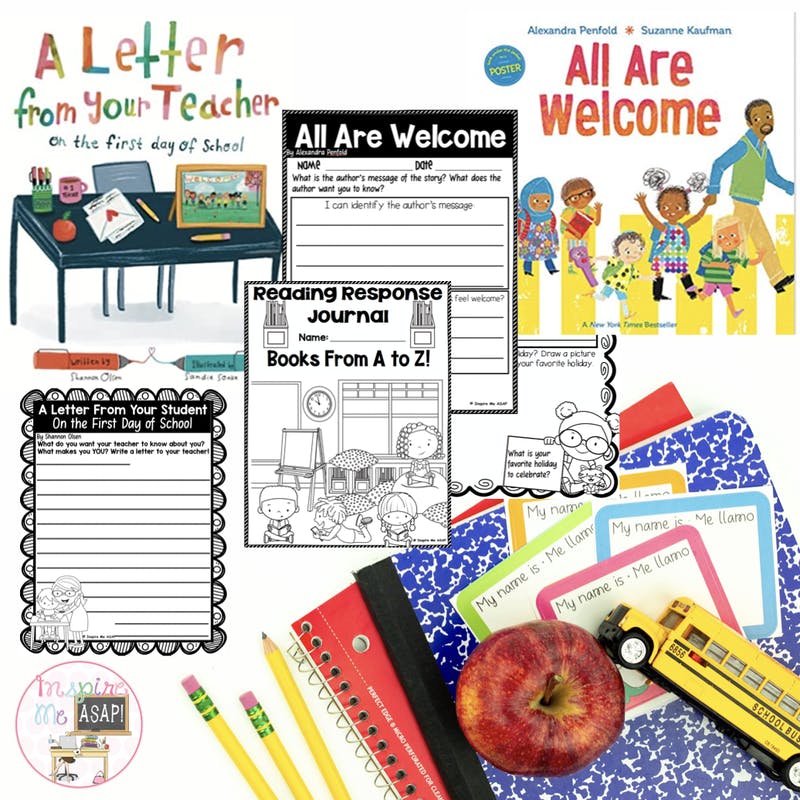Are you ready for a FUN and engaging way to teach your students about the different nonfiction text features? I love to use a detective theme to teach my students all about the different text features they encounter as they read nonfiction texts! In my new video, I share my super fun ideas to set the stage for your new nonfiction unit. I share with you how I teach different mini-lessons (missions!) that each text detective must investigate, in order to earn their official VIP text detective badge, from the Chief of Detectives….that’s YOU!
Click here to watch the video on YouTube: Introducing Non-Fiction Text Features
Interested in the ideas and lesson plans you see in the video?
Click here to purchase: Non-Fiction Text Features
Introducing NF Text Features Video Script:
[00:00:00] Hi everyone. My name is Melissa from Inspire Me A.S.A.P. and in today’s video, I want to share with you ideas of how I kick off my new readers workshop units my students. I set the stage to engage my students with our new nonfiction units by incorporating a detective theme and in this video, I will explain the props strategies and ideas that will help keep your students motivated to learn and ultimately become a very official nonfiction text detective. So just like I introduce to you what this video is going to be about I introduce to my students what their new reader’s workshop unit is going to be about by dressing up in this costume and saying boys and girls I want you to take a few seconds to listen to the song.
[00:01:05] I usually have one or two students who can identify that that is a detective theme.
[00:01:11] It’s the Mission Impossible theme song and I tell them yes you are correct.
[00:01:16] Boys and Girls I’m so excited to start my new nonfiction unit with you where you are going to become official text detectives and I introduce to them on this very first day their own top secret envelope which has all of their missions inside now I call the missions for this unit. I call them mini lessons for this unit the missions. If you’ve watched my other videos you know that I say many many many lessons many lessons but for this unit I tell my students that boys and girls instead of having many lessons you will be having a mission every day for our reading workshop time and I have them pull out their very official text feature flipbook. They give me a thumbprint with the ink pad and they say that yes I accept my missions now in order to pass each mission they have to be able to independently identify the text feature that I taught that excuse me that I taught that day. So for example, if I taught my students about photographs and captions and how they go together like peanut butter and jelly and I explicitly taught them that if that was the mini-lesson or the mission for that reading workshop day then my students would have to be able to independently find examples or find evidence find proof find evidence of that inside of their own non-fiction book

[00:03:05] And then write about that text evidence that they found in their nonfiction flip book and if they do that correctly they pass when they pass all of the different text features and all of the different text features are the ones that I want to teach them about that I want them to know about. Some of them are on this anchor chart here. Once they can show me that they can independently do that they pass those in individual missions then they are ready for their final interview and this is just a fun way that I jazzed up a reading conference and I just put a fun little twist on it and I tell my students one by one I will be interviewing you to see if you pass for your official title of a text detective and what I do during this interview. Just like I did for you at the intro as I make sure that I’m all dressed up in my uniform I have my students. Also I have from Melissa and Doug are really adorable detective costumes that I have them put on and I interview them just as I would and much more serious tone by the way just like I would in a reading conference and I’d begin by saying Tell me the book that you’re reading about.
[00:04:34] And then we jump into the meat and potatoes of the conference and I would tell them find me an example of a photograph and a caption find me an example of a grep graph I want you to find evidence of for example a subheading. Show me where the nonfiction or show me where the table of contents are. Show me a word that’s in the glossary. So I would have them I each student be interviewed one at a time and that’s how they would pass their final test to become a text detective. Now you might be wondering well what happens if they pass and do all the students pass. Yes all the students pass and some students might need some more support. So I might have their informational text bookmark right in front of them that they can use to help or they have the anchor chart that they can look at. But this isn’t a gotcha game that I’m playing all my students pass we’re just doing this for fun. Some just need more support than others. But the goal is to get every child to successfully identify those nonfiction text features and when they do pass they get their very official congrats letter. You passed your final mission and you are a true nonfiction text detective.
[00:06:00] And I tell them that they passed. Their status is did I sign my name. They sign their name a lot of my students have nicknames so I think that’s fun. They put their nickname their secret code name and then they get their official badge. So just like the teacher has her badge and I literally just use this for my conference that I attended a few years ago. They get their own badge as well and then they get to wear this badge. Any time that they are reading a nonfiction book during our reading time I’ve had students say when the Reading Intervention teacher comes to pick them up can I get my tax detective badge. Absolutely. Are you reading enough fiction book. Yes we are. OK. Then yes you can have your badge just as a fun way to get them excited about their independent reading time or their guided reading time or whatever it is that you’re doing during that reading block. I hope that this has inspired you to try some different ways to incorporate these non-fiction text features into your own unit. If you are looking for any of the resources that I shared in this video I will put links in the description below. Thank you.








